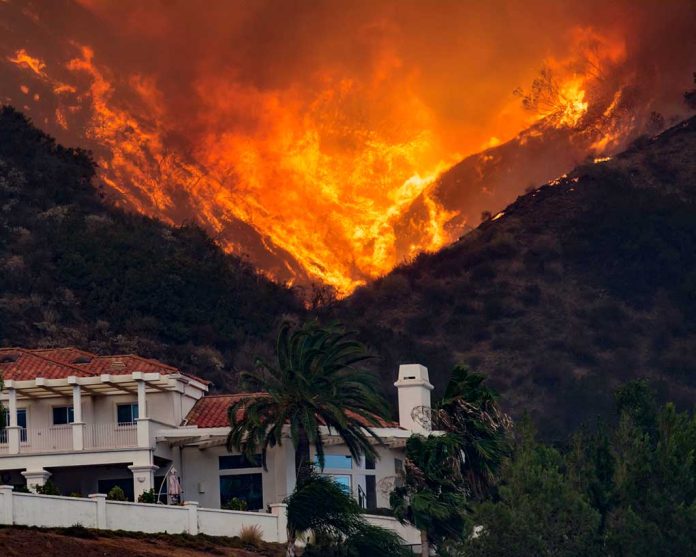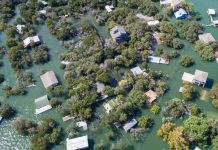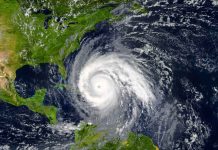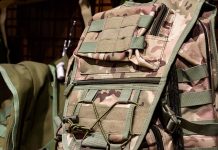
(TacticalNews.com) – Fires are currently ravaging Northern California, displacing hundreds, if not thousands, of people from their homes. In fact, over 100 fires are scorching the pacific northwest right now… and that’s just the United States. Countless wildfires are burning across the world as well, from Greece, Algeria and Italy all the way to Russia.
It’s important to realize that these disasters are incredibly devastating, and we need to get ready for them – even in areas where wildfires aren’t normally a threat. Everyone needs an evacuation plan for the different disasters they could face.
First Priority
If you’re lucky enough to have a self-reliant lifestyle, or even just some livestock, it’s a good idea to do what you can to keep them safe regardless of the disaster you face. However, they’re not the top of your priority list; your family is. Don’t endanger yourself to protect livestock or even your property. You and your family are always priority #1, no matter what the situation is.
Pets and Animals
With your list of priorities straight, you need to think about the animals’ best interest. Fires can be unpredictable, making it impossible to know what they might destroy. In most cases, if a wildfire is threatening your home or property, it’s best to let your animals out so that they can find safe spots to hide.
If you choose to take this course of action, be sure to lock the animals out of their pens; animals prefer to go to places that are familiar, and you don’t want them going back to an area where the fire is set to destroy.
Think about ventilation. Your animal enclosures and shelters could fill with smoke, and some animals, like chickens, have sensitive respiratory systems and need air circulating to avoid smoke inhalation. Get the air moving by placing fans strategically around the inside of shelters.
Of course, electric fans won’t work if you have no power.
Alternative Power
Power isn’t essential for our survival, but it sure does help. On a homestead, you may have an electric well, which obviously won’t work if there’s no power. Be sure to have a backup source of water, such as a solar or manual well pump. Generators are an option, but use them with caution; you can accidentally send electricity to the power lines if your setup isn’t right, which will only add to the problem at hand.
Water reservoirs and tanks are also important to have as livestock also need quite a bit of water, especially with temperatures increasing.
Should You Stay or Should You Go?
The safest place for you is often your home, but you can’t always stay in the house and hope for the best. If your home is at risk of burning to the ground, don’t hesitate to act. You can leave or attempt to protect your house, as some people do, with a sprinkler system. However, the measure will only help to a certain extent and may not be enough to save anything.
Be sure you have enough fuel in your vehicle to make an escape to a safe location. If you have a convenient way to do so and can do it quickly, load up your livestock and take them with you. Always have extra food for your family and your animals. Also, remember that fuel in your vehicles and generators can explode when the temperatures get too high.
Prevention
If your property suffers from dry grass and foliage, be sure to keep it mowed down to minimize the risk of embers coming and catching it on fire. Spraying water on your property will only protect it so much. Fires are preventable, but sometimes they are simply inevitable. Be sure your family has an emergency disaster plan and a way out of the area.
It’s important to remember that disasters don’t always occur alone; they often stack on top of each other, so know how to handle multiple disasters at once. You may also need to be prepared to live in your vehicle until it’s safe to return to your home, if it’s still standing.
Get ready now to avoid a last-minute panic later. You can never be too prepared.
Do you have an evaluation plan in place should a wildfire, or some other disaster, threaten your home? Reply to your email and let us know, we would love to hear from you!
Copyright 2021, TacticalNews.com



















